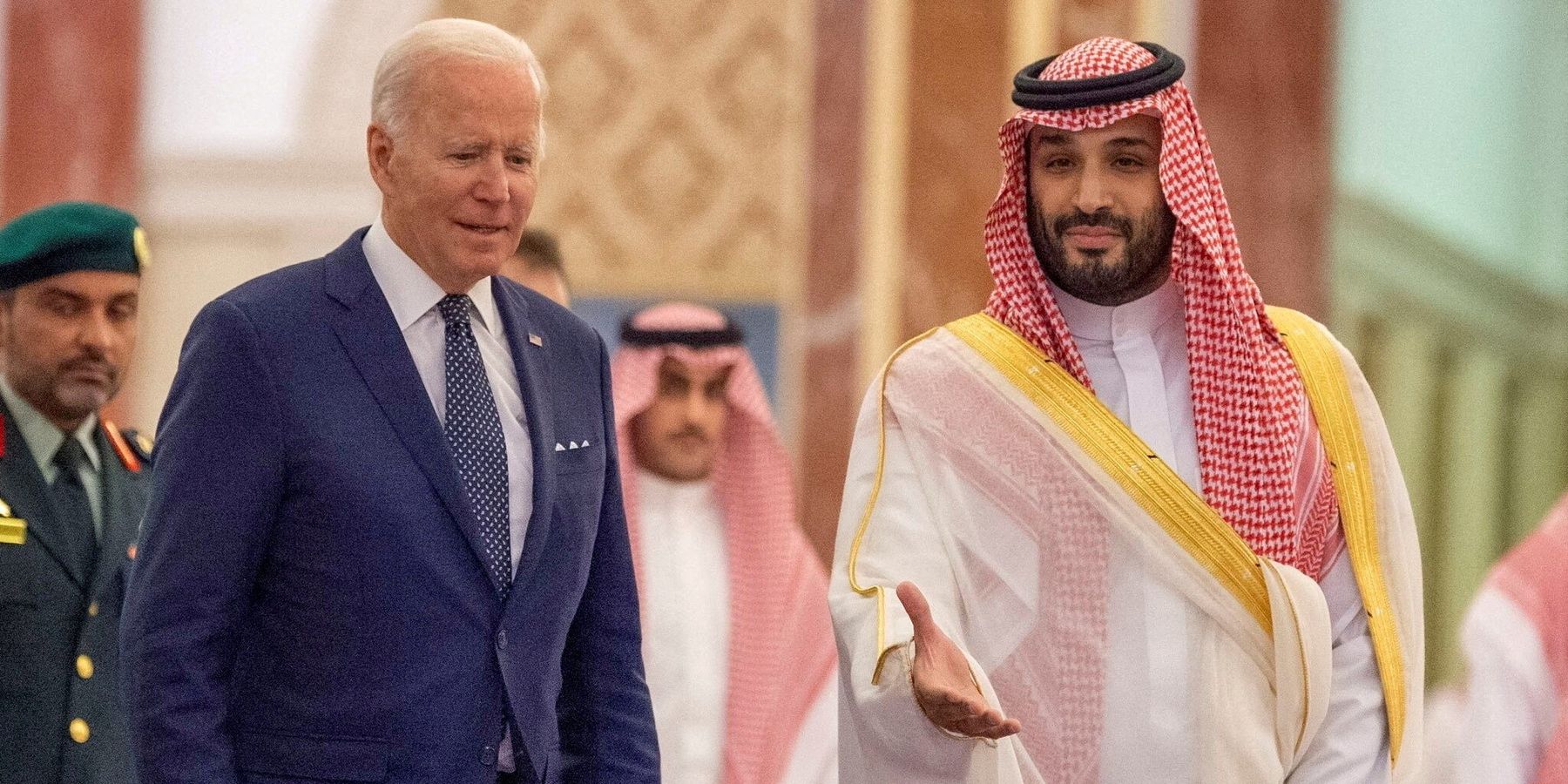When President Biden was still candidate Biden, he rarely minced words when talking about Saudi Arabia. On the campaign trail, he once promised to force the Saudis to “pay the price and make them in fact the pariah that they are.”
That promise fell flat once Biden took office. After first suspending sales of certain weapons to Saudi Arabia, Biden has since gone out of his way to court Riyadh and continue America’s close relationship with the kingdom. Reports suggest that, despite continued allegations of Saudi human rights abuses, the White House wants to give Saudi Arabia security guarantees and even nuclear technology in order to encourage the kingdom to normalize relations with Israel.
A non-partisan coalition is now pushing for a change in course. In a letter to the Senate, more than 40 advocacy and research organizations urged lawmakers to “call a vote on the U.S. relationship with the government of Saudi Arabia” and force the reckoning that Biden promised on the campaign trail almost four years ago.
In the short-term, the letter calls on the Senate to block a pending weapons sale to Saudi Arabia. The State Department notified Congress of the proposed deal on December 4, leaving only a few days to pass a joint resolution of disapproval before the holidays.
The notification comes just a few months after the State Department allowed a $500 million deal to supply spare parts for a range of American military equipment, including some weapons that Saudi border guards used to kill “at least hundreds” of Ethiopian civilians attempting to cross the Yemeni-Saudi border, according to a blockbuster report from Human Rights Watch.
“These arms sales are like a continuation of that fist bump that was heard around the world,” said Isaac Evans-Frantz of Action Corps, which led the effort to organize the letter. “This is the fist bump, but with weapons.”
Signatories to the letter also include Democracy for the Arab World Now (DAWN), Just Foreign Policy, the Libertarian Institute, Tigray Human Rights Forum, Veterans for Peace, the Yemeni Alliance Committee, the Yemen Relief and Reconstruction Foundation, and the Quincy Institute, which publishes RS.
The effort comes at a moment of crisis for U.S. policy in the Middle East. Two months after Hamas’ unprecedented attack on Israel, the Biden administration has come to be seen as a primary facilitator of Tel Aviv’s brutal war in Gaza, which has left nearly 20,000 Palestinians dead and countless more injured.
The Houthis — the Yemeni militant group that has largely won its war with Saudi Arabia — have further complicated the situation by attacking merchant ships linked to Israel in the Red Sea. The group says these attacks would stop if Israel agreed to a ceasefire and allowed humanitarian aid into Gaza, but the U.S. is now reportedly considering a military response that would risk reigniting the conflict in Yemen or even sparking a broader war.
“Biden is really spending his term engaged in Middle Eastern wars,” said Jehan Hakim of the Yemeni Alliance Committee. The U.S. must “end its complicity” in these conflicts and “prioritize diplomacy over military action,” Hakim argued.
As the letter notes, Congress could force Biden to change course by passing a “Section 502B” resolution, a reference to the law that makes it illegal for the U.S. to give weapons to serial human rights violators.
If passed, a resolution would mandate the State Department to submit a report on human rights abuses in Saudi Arabia within a month. Depending on the results, lawmakers could vote to block or restrict arms sales to the kingdom.
“It's very important for Congress to apply U.S. laws when it comes to war,” said Aisha Jumaan of Yemen Relief and Reconstruction Foundation. “It just really doesn't make any sense that we break the laws that we put in our books.”
Sen. Bernie Sanders (I-Vt.) has already introduced a similar 502B bill targeting Israel, which has faced significant accusations of human rights violations and war crimes during its campaign in Gaza.
The letter’s final suggestion is to force a vote on a Yemen war powers resolution, which could stop the Biden administration from directly entering a war with the Houthis. A similar effort passed the House and Senate in 2019 but failed to overcome a veto from President Donald Trump.
As Jumaan noted, any rekindling of hostilities in Yemen could have disastrous consequences for the country, which only recently reopened a key port and airport in the north and west. At least 17 million of Yemen’s 33 million residents are food insecure, according to the United Nations.
By pushing Biden to stand up to Saudi Arabia, the Senate could help rebuild some of the credibility that the U.S. has lost in the Global South by standing so closely at Israel’s side during its brutal war in Gaza.
“These are underutilized tools,” said Evans-Frantz. “The U.S. is rapidly losing all shreds of credibility when it calls for human rights. This is a moment where senators can stand up.”
- Biden’s Middle East deal is a disaster ›
- Build back better or more of the same? New arms deal to Saudi announced ›

















